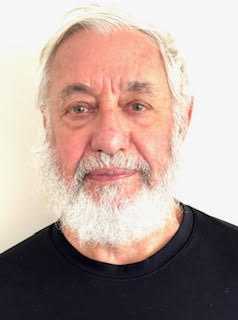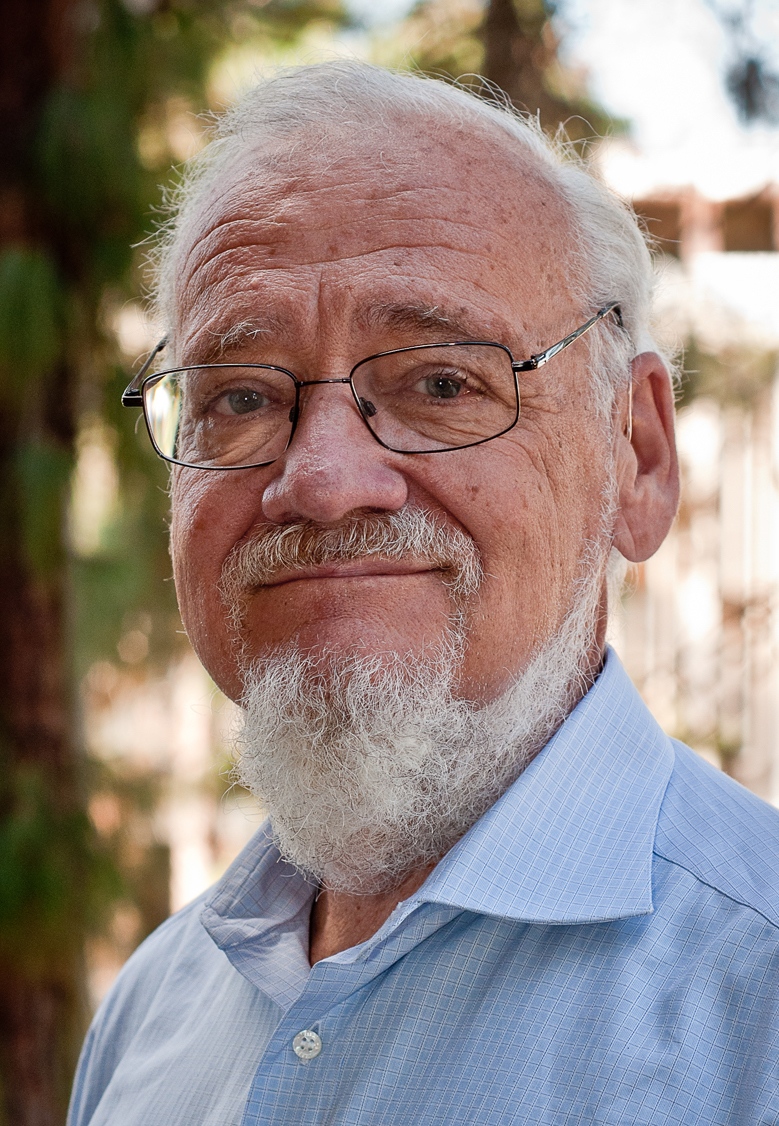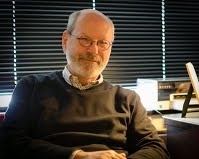Hempel Award Recipients
 2024 Hempel Award
2024 Hempel Award
The Governing Board of the Philosophy of Science Association is pleased to announce that the recipient of the Carl Gustav Hempel Award for 2024 is James Woodward. The Hempel Award was established in 2012 to recognize lifetime scholarly achievement in the philosophy of science, and to acknowledge the example of scholarly excellence and collegiality set by Professor Hempel (1905–1997).
James Woodward is Emeritus Distinguished Professor at the Department of History and Philosophy of Science at the University of Pittsburgh (2010-22) and Emeritus J.O. and Juliette Koepfli Professor of Humanities at the California Institute of Technology, 2001-2010. He is a fellow of the American Academy of Arts and Sciences, a fellow of the American Association for the Advancement of Science and was president of the
Philosophy of Science Association from 2010–12.
Woodward’s research is viewed by many as an exemplar of general philosophy of science. His work has made significant advances to numerous foundational topics, including those pertaining to causation, explanation, laws of nature, scientific theories, evidential support and many others. His work accomplishes this in a way that engages with scientific work across many fields, including biology, neuroscience, cognitive
science, medicine, physics, economics, and many others.
One of Woodward’s most influential contributions is his interventionist account of causation and explanation, which is detailed in many papers and in his first book Making Things Happen, which won the 2005 Lakatos Award. This work is viewed as revolutionizing the philosophical literature on causality, it is a common touchstone for philosophical projects that use causal notions but address other topics, and it has
directly influenced scientific work, for example, by identifying causal distinctions that have been studied empirically and shown to be important in human causal cognition.
Woodward's second book, Causation with a Human Face has several interrelated themes. It explores the empirical literature from psychology and other disciplines on causal cognition in humans and other animals, in part with an eye to determining the philosophical morals that might be extracted from this. Relatedly, Causation with a Human Face also attempts to bring together descriptive results concerning causal thinking with normative claims about how causal reasoning ought to proceed of the sort found in philosophy, statistics and machine learning.
The influence of Woodward’s work extends beyond philosophy to a range of scientific fields. His collaborators include John Allman (neuroscience), Antonio Rangel (neuroscience) Ken Kendler (psychiatry), Alison Gopnik (psychology), Patricia Cheng (psychology), David Goodstein (physics) with resulting publications in journals outside of philosophy.
Nomination letters for James Woodward also emphasized his extraordinary contributions as a mentor to many in the field, including, students and early career scholars. These comments noted his role as a dedicated, kind, supportive, and thoughtful advisor.
With his remarkable contributions to philosophy of science, to numerous scientific fields, and to advising and supporting the next generation of researchers in our field, James Woodward is an incredibly worthy recipient of the 2024 Carl Gustav Hempel Award.
2022 Hempel Award
The Governing Board of the Philosophy of Science Association is pleased to announce that the recipient of the Carl Gustav Hempel Award for 2022 is Helen Longino. The Hempel Award was established in 2012 to recognize lifetime scholarly achievement in the philosophy of science, and to acknowledge the example of scholarly excellence and collegiality set by Professor Hempel (1905–1997).
Helen Longino is Clarence Irving Lewis Professor of Philosophy, Emerita at Stanford University. During her long career, she has changed the direction of philosophy of science in several different ways.
In her early work, Longino focused on cases in which biological research went astray because of male-oriented assumptions (often made implicitly). In a groundbreaking article co-authored with Ruth Doell, she diagnosed the ways in which research can interfere with understanding and, in the longer term, distort policy decisions. As she would demonstrate, again and again in her subsequent writings, a deep knowledge of the details of particular scientific investigations can disclose places where the sciences can benefit from philosophical criticism.
Her book, Science as Social Knowledge investigated the social conditions that should be in place if the sciences are to function well. Written at a time when scholars in science studies were emphasizing the social embedding of the natural sciences, and often appealing to that embedding to question the authority of science, Longino posed normative questions about the social background. This book has given rise to a new and important subfield in the philosophy of science, in which issues in social and political philosophy are explored in relation to scientific research. It is the classic text in this genre, the one that began it and is still (like Darwin’s Origin) necessary for anyone who works in the area to read and re-read. Longino’s work has opened philosophy of science to the exploration of value-related questions, and, consequently, made possible kindred ventures undertaken by a significant number of scholars.
Longino’s second book, The Fate of Knowledge, extended the perspective of her first, and introduced an important new thesis. Others had suggested that the simultaneous pursuit of alternative research programs might be healthy for the development of science. Longino’s pluralism went further. Instead of viewing the aim of the sciences as identifying a single correct theory (for a given domain), she suggested that the goal of a field of science might allow for rival frameworks to continue in perpetuity. This thesis has been both influential and controversial.
Longino’s third book, Studying Human Behavior, systematically takes up an area of science she had repeatedly used in advancing her earlier conclusions. Ventures in behavioral biology have served her as prime examples of cases in which the social norms of flourishing science are violated. Behavioral biology has also furnished arguments for pluralism. Longino adopts an ecumenical approach to the various approaches to fathoming the proximate causes of important types of human behavior. Instead of supposing that one of these proves to be the best, she argues that the approaches address different questions and use incommensurable evidence. Her study serves as a further delineation of the type of pluralism she favors, and as the entrée to a novel style of interaction between scientific research and social policy, in which critical philosophical discussion bridges the socially important questions the sciences might address and the methods available for research.
A fourth major achievement, embodied in her books and in many of her articles, is to articulate a feminist epistemology that takes both feminism and epistemology seriously. It’s no exaggeration to say that she stands out as a leader among the feminist scholars whose writings have approached knowledge, and especially scientific knowledge, with the most sophistication.
Helen Longino is distinguished by the breadth of her influence. She has been a model for how to do philosophy that makes a difference and to do it in a fair-minded and compassionate way.
 2020 Hempel Award
2020 Hempel Award
The Governing Board of the Philosophy of Science Association is pleased to announce that the recipient of the Carl Gustav Hempel Award for 2020 is Philip Kitcher. The Hempel Award was established in 2012 to recognize lifetime scholarly achievement in the philosophy of science, and to acknowledge the example of scholarly excellence and collegiality set by Professor Hempel (1905–1997).
Philip Kitcher is John Dewey Professor Emeritus of Philosophy at Columbia University. Before Columbia, he taught at the University of California, San Diego, and before that at the University of Minnesota. Kitcher‘s trailblazing ideas and outstanding productivity over the past forty years have spanned across fields as wide-ranging as general philosophy of science, philosophy of biology, science and values, ethics, science policy, and pragmatism. Kitcher‘s lasting legacy in each and every of these areas has consisted in showing how philosophy is —and ought to be—central to every other branch of inquiry and culture in a fast-changing world.
Kitcher‘s interests have centred on a number of topics—from scientific explanation to unification, and realism in science—that have deep roots in the American pragmatist tradition. His 1993 book The Advancement of Science charted a new course for questions about truth, realism, and progress in science. Science, Truth, and Democracy (Oxford University Press, 2001) opened the path to many central debates about the role of science in democratic societies, debates to which Kitcher remains an important contributor. His work on what role democratic decision-making can—and should—play in tackling the crisis of climate change is just one among other examples in a long history of bringing original philosophical analysis and ideas to problems of huge societal importance.
In philosophy of biology, In Mendel‘s mirror: philosophical reflections on biology (Oxford University Press 2003) Kitcher put forward novel antireductionist arguments against projects designed to reduce classical genetics to molecular genetics. Building on seminal ideas about ’biologicizing ethics‘, in The ethical project (Harvard University Press 2011) Kitcher pursued a rich exploratory project that aimed to reconstruct the evolution of ethics and the very notion of ethical progress (a topic to which also his most recent book Moral Progress—Oxford University Press 2021— is dedicated). The resulting (empirically and naturalistic-driven) ’ethical project‘ is one that sees the role of ethics as that of ultimately advancing a liberal egalitarian society.
Philip Kitcher is the author of 17 single-authored books (several of which have been translated worldwide in Chinese, Korean, French, Spanish and Arabic), and of 178 articles (very many of which published in top philosophy journals). He was the recipient of the 1987 Lakatos award for Vaulting Ambition and his over 30 named lectures delivered range from the Kant Lectures at Stanford, to the Hempel Lectures at Princeton University, from the Terry Lectures at Yale University, to the Leibniz Lectures in Hannover. He is a Fellow of the American Academy of Arts and Sciences, and the recipient of two awards from the American Psychological Association, the distinguished Prometheus Award from the American Philosophical Association, and the recipient of the 2019 Nicholas Rescher Medal for Systematic Philosophy.
The nominating letters by colleagues and former students unanimously speak to Philip Kitcher‘s rare combination of warmth, humanity, generous availability to mentor early career scholars alongside his extraordinary brilliance. He has served both society and the profession well (not least in his former role as Editor of the journal Philosophy of Science).
Kitcher was the last preceptor of Peter Hempel‘s famous course in philosophy of science at Princeton and is the richly deserving recipient of the 2020 Hempel Prize.
2018 Hempel Award
 The Governing Board of the Philosophy of Science Association is pleased to announce that the recipient of the Carl Gustav Hempel Award for 2018 is Nancy Cartwright. The Hempel Award was established in 2012 to recognize lifetime scholarly achievement in the philosophy of science, and to acknowledge the example of scholarly excellence and congeniality set by Professor Hempel (1905–1997).
The Governing Board of the Philosophy of Science Association is pleased to announce that the recipient of the Carl Gustav Hempel Award for 2018 is Nancy Cartwright. The Hempel Award was established in 2012 to recognize lifetime scholarly achievement in the philosophy of science, and to acknowledge the example of scholarly excellence and congeniality set by Professor Hempel (1905–1997).
Nancy Cartwright is Professor of Philosophy at Durham University, and Distinguished Professor of Philosophy at University of California, San Diego. She is known for her influential and distinguished teaching and research career at Stanford University, where she played a key role in shaping the Stanford School of philosophy of science, and at the London School of Economics and Political Science, where she was the founding director of the Centre for Philosophy of Natural and Social Science.
Prof. Cartwright’s contributions are extremely broad, covering areas as diverse as the philosophy of economics, the philosophy of quantum mechanics, and the history of logical positivism. In numerous books and articles she has given us trenchant insights on key philosophical topics such as causality, powers, measurement, laws of nature, idealization, models, and evidence.
Throughout her career she has challenged conventional wisdom and questioned philosophical stances that had been taken for granted. Her first book How the Laws of Physics Lie (1983) famously critiqued the prevailing notion that the fundamental laws of physics are exactly true and directly applicable to empirical phenomena. In The Dappled World (1999) she presented a picture of reality with diverse local domains of order, and of science as an enterprise of finding such domains and working within them.
In recent years her work has been driven by the conviction that philosophy should be concerned with issues that affect people’s lives, that rigorous thinking should serve practical purposes. In this spirit she has led the Centre for Humanities Engaging Science and Society (CHESS) at Durham University, and made deep investigations into socially relevant topics, especially evidence-based policy. The fruits of this line of work include her co-authored books Evidence Based Policy: A Practical Guide for Doing it Better (2012, with Jeremy Hardie), and Improving Child Safety: Deliberation, Judgement and Empirical Research (2017, with Eileen Munro, Jeremy Hardie and Eleonora Montuschi).
Prof. Cartwright is a Fellow of the British Academy, a MacArthur Fellow, and a member of the American Academy of Arts and Sciences and many other scholarly institutions. She has received numerous awards and honors including the Lebowitz Prize of the Phi Beta Kappa Society. She has also given herself generously to the profession, serving as the President of the Philosophy of Science Association and as the President of the Pacific Division of the American Philosophical Association.
She has inspired and encouraged generations of students and mentees who have been playing their own important roles in academic and other realms of life worldwide. Nancy Cartwright is legendary for her care and support for her students and junior colleagues, and for her promotion of women in academic life.
2016 Hempel Award
 The Governing Board of the philosophy of Science Association is pleased to announce that the recipient of the Carl Gustav Hempel Award for 2016 is Brian Skyrms. The Hempel Award was established in 2012 to recognize lifetime scholarly achievement in the philosophy of science, and to acknowledge the example of scholarly excellence and collegiality set by Professor Hempel (1905-1997). Brian Skyrms is Distinguished Professor of Logic and Philosophy of Science at the University of California, Irvine, and Professor of Philosophy at Stanford University. He is the third recipient of the Hempel Award.
The Governing Board of the philosophy of Science Association is pleased to announce that the recipient of the Carl Gustav Hempel Award for 2016 is Brian Skyrms. The Hempel Award was established in 2012 to recognize lifetime scholarly achievement in the philosophy of science, and to acknowledge the example of scholarly excellence and collegiality set by Professor Hempel (1905-1997). Brian Skyrms is Distinguished Professor of Logic and Philosophy of Science at the University of California, Irvine, and Professor of Philosophy at Stanford University. He is the third recipient of the Hempel Award.
Skyrms has been a leader for many decades in the epistemological side of philosophy of science, and is a particularly central figure in debates about induction, Bayesianism, and subjective probability. His books in this area include Choice and Chance: An Introduction to Inductive Logic (four editions, 1966 to 2000), Pragmatics and Empiricism (1984), and The Dynamics of Rational Deliberation (1990), along with many classic articles. More recently Skyrms has done ground-breaking work on evolutionary models of social behavior, especially cooperative and communicative behaviors. His three elegant books in this area, Evolution of the Social Contract (1996), The Stag Hunt and the Evolution of Social Structure (2004), and Signals (2010) are already regarded as classics, and have initiated a large and exciting literature following his lead. With models that are always as simple as they could possibly be, but no simpler, Skyrms has changed the direction of discussions of meaning and information, and explored rich and unexpected mappings between evolutionary theory and decision theory.
Skyrms has written a total of six sole-authored books, co-authored one with Persi Diaconis, published two collections of papers, and edited or co-edited another seven books. He is a member of the National Academy of Sciences, a winner of the 1999 Lakatos Award, and was President of the PSA (2004-2006) and the Pacific Division of the American Philosophical Association (2000-2001). Lectures include the 2014 David K. Lewis Lecture, Princeton University, the 2013 Wesley Salmon Lecture, University of Pittsburgh, the 2010 Ernest Nagel Lectures Carnegie-Mellon University, the 2008 Jack Smart Lecture Australian National University, the 2006 Hans Reichenbach Lecture, UCLA, and the 2005 Ludwig Wittgenstein Lectures at the University of Bayreuth. He has also done a huge amount of work building the successful Logic and Philosophy of Science Department at UC Irvine, and has advised numerous students who are now teaching in leading departments around the world and who continue the Skyrms tradition of rigorous and creative philosophy of science.
2014 Hempel Award
 The Governing Board of the Philosophy of Science Association is pleased to announce that the recipient of the Carl Gustav Hempel Award for 2014 is Elliott Sober. Professor Sober is William F. Vilas Research Professor and Hans Reichenbach Professor in the Department of Philosophy at the University of Wisconsin. The Hempel Award was established in 2012 to recognize lifetime scholarly achievement in the philosophy of science and to acknowledge the example of scholarly excellence and collegiality set by Professor Hempel (1905-1997).
The Governing Board of the Philosophy of Science Association is pleased to announce that the recipient of the Carl Gustav Hempel Award for 2014 is Elliott Sober. Professor Sober is William F. Vilas Research Professor and Hans Reichenbach Professor in the Department of Philosophy at the University of Wisconsin. The Hempel Award was established in 2012 to recognize lifetime scholarly achievement in the philosophy of science and to acknowledge the example of scholarly excellence and collegiality set by Professor Hempel (1905-1997).
Professor Sober has played a formative role in the establishment of the field of philosophy of biology and has also made essential contributions to the topics of causality and confirmation. He has brought standards of philosophical rigor, clarity, and deep knowledge of evolutionary theory to his philosophical practice, which inspired many younger philosophers to enter the field of philosophy of biology. His books include the ground-breaking The Nature of Selection (1984), Reconstructing the Past– Parsimony, Evolution, and Inference (1988), Evidence and Evolution – the Logic Behind the Science (2008), and, with David Sloan Wilson, Unto Others – the Evolution and Psychology of Unselfish Behavior (1997). Each of these books has initiated philosophical literature exploring and developing the issues articulated in them. Professor Sober publishes in scientific as well as philosophical publications, establishing the relevance of philosophy of biology to biologists, and the relevance of philosophy of science to scientists more generally. His forthcoming book Ockham’s Razors extends the treatment of the concerns of his first book, Simplicity (1975).
Professor Sober has also contributed to the profession's teaching mission by editing or authoring books intended for use in courses. Among these is his 1993 Conceptual Issues in Evolutionary Biology – an Anthology, for decades the indispensable textbook in philosophy of biology. He has also ventured beyond philosophy of biology in the coauthored Reconstructing Marxism – Essays on Explanation and the Theory of History (1992).
While Professor Sober is a sought after visitor in all corners of the academic world, he has also been an active mentor to his students, supervising dissertations of scholars who have themselves become major contributors in the philosophy of science. He has also served the profession in multiple capacities, including as President of the Central Division of the American Philosophical Association, as President of the Philosophy of Science Association, as Secretary (1991-1999) and currently as President (2012-2016) of the International Union of History and Philosophy of Science and Technology – Division of Logic, Methodology, and Philosophy of Science, and has been elected to serve as Chair of Section L (History and Philosophy of Science) of the American Association for the Advancement of Science. Recipient of numerous awards, he is a fellow of the Linnean Society of London and of the American Association for the Advancement of Science.
The letters nominating Professor Sober for the award all spoke of his intellectual generosity, his open-mindedness, and his willingness and ability to listen. As a trailblazing scholar and as an exemplary citizen of the scholarly world, he is indeed a fitting recipient of the 2014 Hempel Award for lifetime accomplishment in the philosophy of science.
2012 Hempel Award
 The inaugural, 2012 Hempel Award was presented to Bas C. van Fraassen at the Twenty-Fourth Biennial Meeting of the Philosophy of Science Association. Bas van Fraassen, the McCosh Professor of Philosophy Emeritus at Princeton University and Distinguished Professor of Philosophy at San Francisco State University, is the chief architect of modern empiricism in the late twentieth and early twenty-first centuries. In four volumes — The Scientific Image (1980) (co-recipient of the 1986 Lakatos Award), Laws and Symmetry (1989), The Empirical Stance (2002), Scientific Representation (2008) — and dozens of articles, van Fraassen has produced a systematic account of science, constructive empiricism, which advocates a semantic approach to scientific theories and, on that basis, urges skepticism regarding laws of nature, anti-realism regarding unobservables, and pragmatism regarding explanation. In the three decades since its introduction, constructive empiricism has emerged both as a locus of outstanding scholarship in the philosophy of science and as an intellectual monument to Professor van Fraassen's exceptional philosophical insight, clarity and creativity. Professor van Fraassen has also made foundational contributions to subfields within the philosophy of science, in many cases not merely shaping these areas of research but helping to form them. This will be most evident to contemporary philosophers of physics, many of whom were introduced to the field by van Fraassen's An Introduction to the Philosophy of Time and Space (1970), and who almost certainly have his Quantum Mechanics: An Empiricist View (1991) on the shelf as well. But something similar is true for several other fields, notably the philosophy of probability and the philosophy of logic. Where van Fraassen has focused his attention, the invariable result has been a clearer and deeper understanding of the issues for all. Professor van Fraassen is a Fellow of the American Academy of Arts and Sciences, and has served as President of the Philosophy of Science Association, editor of the Journal of Philosophical Logic, and co-editor of the Journal of Symbolic Logic. In recognition of Professor van Fraassen's record of scholarly achievement and service in the philosophy of science, and in light of the great intellectual energy, generosity, egalitarianism and kindness that he brought to the philosophy of science (including, especially, his mentoring of graduate students and junior scholars in philosophy of science) the Governing Board of the PSA congratulates Professor van Fraassen on the occasion of the inaugural Hempel Award. At the invitation of the Governing Board, Carl Hempel's children, Miranda and Peter Hempel, presented this inaugural Hempel award prior to the PSA Presidential Address at PSA2012 in San Diego, California, November 15-17, 2012.
The inaugural, 2012 Hempel Award was presented to Bas C. van Fraassen at the Twenty-Fourth Biennial Meeting of the Philosophy of Science Association. Bas van Fraassen, the McCosh Professor of Philosophy Emeritus at Princeton University and Distinguished Professor of Philosophy at San Francisco State University, is the chief architect of modern empiricism in the late twentieth and early twenty-first centuries. In four volumes — The Scientific Image (1980) (co-recipient of the 1986 Lakatos Award), Laws and Symmetry (1989), The Empirical Stance (2002), Scientific Representation (2008) — and dozens of articles, van Fraassen has produced a systematic account of science, constructive empiricism, which advocates a semantic approach to scientific theories and, on that basis, urges skepticism regarding laws of nature, anti-realism regarding unobservables, and pragmatism regarding explanation. In the three decades since its introduction, constructive empiricism has emerged both as a locus of outstanding scholarship in the philosophy of science and as an intellectual monument to Professor van Fraassen's exceptional philosophical insight, clarity and creativity. Professor van Fraassen has also made foundational contributions to subfields within the philosophy of science, in many cases not merely shaping these areas of research but helping to form them. This will be most evident to contemporary philosophers of physics, many of whom were introduced to the field by van Fraassen's An Introduction to the Philosophy of Time and Space (1970), and who almost certainly have his Quantum Mechanics: An Empiricist View (1991) on the shelf as well. But something similar is true for several other fields, notably the philosophy of probability and the philosophy of logic. Where van Fraassen has focused his attention, the invariable result has been a clearer and deeper understanding of the issues for all. Professor van Fraassen is a Fellow of the American Academy of Arts and Sciences, and has served as President of the Philosophy of Science Association, editor of the Journal of Philosophical Logic, and co-editor of the Journal of Symbolic Logic. In recognition of Professor van Fraassen's record of scholarly achievement and service in the philosophy of science, and in light of the great intellectual energy, generosity, egalitarianism and kindness that he brought to the philosophy of science (including, especially, his mentoring of graduate students and junior scholars in philosophy of science) the Governing Board of the PSA congratulates Professor van Fraassen on the occasion of the inaugural Hempel Award. At the invitation of the Governing Board, Carl Hempel's children, Miranda and Peter Hempel, presented this inaugural Hempel award prior to the PSA Presidential Address at PSA2012 in San Diego, California, November 15-17, 2012.